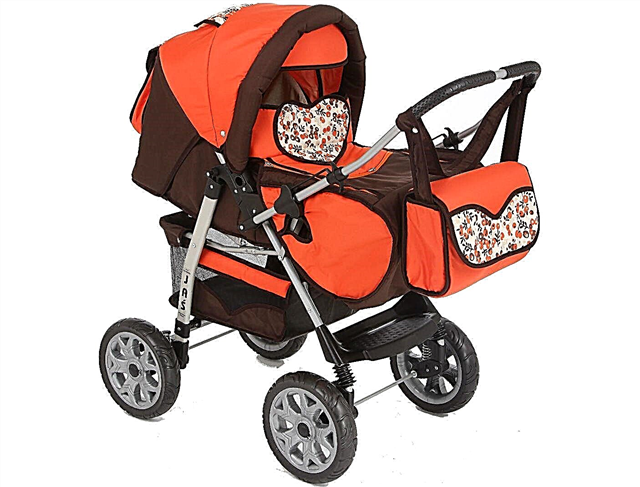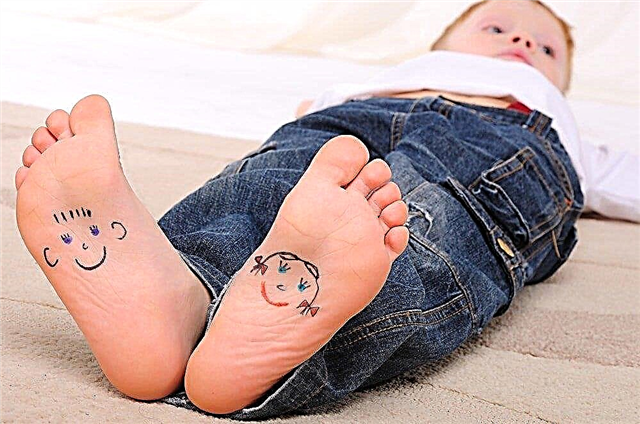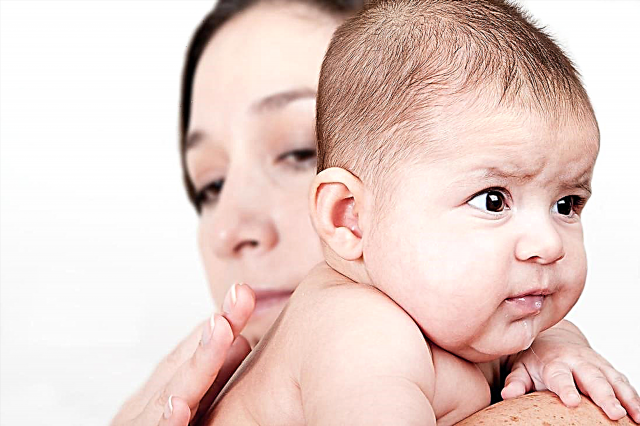
There is nothing sadder for a parent than seeing a child depressed. But it just so happened that this psychiatric term is increasingly used unreasonably by both adults and children. We often talk about a bad mood - depression. In fact, periods of stress and low mood have nothing to do with clinical depression. And real depression definitely needs the help of a doctor. In this article, we will talk about how parents can identify depression in a child and how to help him get out of this state.

What it is?
Depression in children and adults is a serious mental disorder, the main manifestation of which is not only a bad mood for a long time, but also the loss of the ability to enjoy what used to be pleasant. True clinical depression has characteristic symptoms and is therefore easy to identify. You need to understand that depression in children is not so common. She usually wears situational and is a temporary reaction of the child's psyche to adverse events. Clinical depression, which tends to become chronic, life-long, usually begins in adolescence, i.e. from 11-12 years old and older.
Depression psychiatrists classify as a group affective disorders. She responds well to treatment if help is provided in a timely manner.
The word itself comes from the Latin "crush". It is the depressed state that distinguishes children with depression from their peers. Depression accounts for about 15% of the total mass of children's mental disorders. Recently, child psychiatrists have been sounding the alarm - cases of true childhood depression have become more common. Thus, in children under 3 years of age, the prevalence of the disease is about 0.7% of the total number of children, and by adolescence, the prevalence reaches 23%.
Most often, depression in children starts in the fall and winter. A lack of sunlight is believed to be a predisposing factor, but the underlying emotional instability is always underlying.

Causes
If in adults the cause of depression in almost half of the cases cannot be established, then in children with this everything is somewhat easier, because up to a certain age, an affective disorder is generally not characteristic of a healthy child due to the peculiarities of the organization of the psyche and nervous system.
When it comes to children under the age of three, before depression in this case are almost always pathological in nature and are usually associated with one of the following factors.
- Damage to the central nervous system. Mood disorders in this case are closely related to damage to brain cells. This is observed with prolonged hypoxia during pregnancy, if the child has suffered an intrauterine infection, if during childbirth he experienced suffocation, acute hypoxia, and also after birth in the case of severe meningitis and other neuroinfections. The condition in which the brain lacks oxygen is especially dangerous, since it often leads to cerebral depression in the newborn.
- Pathological relationships... Anaclytic depression sometimes develops in children 6-15 months old, if they are separated from their mother, reactive depression is more characteristic of children 2-2.5 years old, who are separated from their families, who, in the absence of readiness to attend a nursery, were sent to them, etc. In the background of a lack of maternal attention, depression in a child develops quite quickly. Domestic violence, scandals, a difficult emotional situation, and the aggression of loved ones can become the cause of mental pathology.
- Heredity. The predisposition to depressive disorders is also inherited. It is not necessary that the child of a woman suffering from mental disorders, drug addiction, alcoholism will have affective mental disorders, but the probability of this is quite high.


As soon as the kid reaches preschool age, he gets the first experience of interacting with society - this is the beginning of visiting the kindergarten, sections, circles. At this age, a previously cheerful child may begin to suffer from depression for such reasons.
- The attitude of the parents and their parenting style. Violence, excessive control, too much care, as well as indifference, disinterest in the success of the baby, in his affairs, can lead to a loss of interest and meaning from everything that happens. In this case, the child may well become depressed with anxiety.
- Relationship with peers... Babies who find it difficult to build relationships with their own kind experience constant stress, which becomes the cause of alienation, attempts to escape from communication, isolation and, as a result, the development of depression.
- Family conflicts and unhealthy psychological climate, in which the child does not feel safe at home.

School-aged children may experience clinical depression for the same reasons only the relationship between schoolchildren and adolescents is becoming more complicated, and the mechanism of mental disorder is becoming more complicated. Often, children "burn out" and lose interest in their own lives against the background of increased demands from parents, teachers, significant workloads at school and outside the classroom. The more often a depressed child faces setbacks, the faster the mental disorder progresses.
At the level of physiology, biochemistry, depression develops in children with a lack of hormones serotonin, norepinephrine in the body. With stress and anxiety, cortisol is produced, an excess of which also leads to mental disorders. It has been suggested that melatonin levels also affect the likelihood of depression.
Which children are most susceptible to depression:
- premature;
- with congenital malformations, anomalies of the central nervous system;
- suffering from neurosis;
- difficult to adapt to new circumstances and conditions;
- prone to fear, anxious, vulnerable;
- introverts.


Signs and symptoms
Children still do not know how to assess their emotions objectively, and therefore it is very difficult for them to formulate and make it clear to their parents what is happening to them. The symptoms of childhood depression are therefore called masked symptoms. But this does not mean that an attentive mother will not see them if she wants. The fact is that depression at the mental level often manifests itself as somatic pain at the bodily level, and it is precisely such pains (which have no medical reasons and explanations) that should become an important warning sign.
If we are talking about small children, it is worth paying attention to increased anxiety, it almost does not go away. A child with depression usually has sleep disturbances, poor appetite, lack of weight, defecation disorders (sometimes diarrhea, or constipation) are often observed, and the heart beats faster. The kid complains of pain here and there, but examinations do not show any irregularities in the functioning of organs and systems. Kids do not cheat, do not invent - they really experience psychosomatic pains.
Kids are reluctant to go to the kindergarten, they are not enthusiastic about the idea of their mother to go to a park or zoo on a day off. They are, as it were, indifferent, outwardly calm, but it is very difficult to cause joy in them.

Younger schoolchildren begin to focus on their strange state, they can think of diseases for themselves. Anxiety increases. If in adults depression manifests itself mainly in the morning and repeats from day to day, then in children, symptoms of decreased mood are usually observed in the evening. Such a child is difficult to interest.
Depressed teenagers lose the ability to enjoy even the things they love - music, sweets, friends. They may stop taking care of themselves, observe hygiene standards, they do not want to communicate, withdraw into themselves, do not believe in themselves, suffer from low self-esteem, and have no motivation. Adolescent depression significantly increases the suicidal risk factor.
The hallmark of clinical depression is its consistency. That is, episodes of decreased mood are repeated every day or almost every day for at least three weeks.
Against the background of depression, children often experience a wide variety of fears that grow with them and, in the absence of timely help, can lead to the formation of persistent phobias and panic attacks.

How to help and what to do?
If you notice signs of depression in a child, you should not rely on your own knowledge of child psychology, as well as on the all-knowing Internet - getting out of depression on your own, even for adults, is a very difficult task. A baby or teenager must be shown to doctors - pediatrician, neurologist, psychiatrist... Only these specialists will be able to find out if depression really exists, what it is, how severe it is and how to treat it.
The main methods of treatment are psychotherapy and medication support, if necessary. An integrated approach and patience will help a child to get out of this state - treatment can be lengthy.
To change the biochemical depressive background, special drugs are used - antidepressants. A psychotherapist or psychologist helps the child learn to articulate his emotions, not to keep them in himself, relaxation therapy is also used - massage, swimming. Children are shown art therapy, play therapy.


Correction of family relations is of great importance. Helping a child recover from depression means eliminating all risk factors that can affect its development and maintenance.
Unfortunately, even with proper treatment, up to 25% of children then experience relapses of mental disorders within a year. Within two years, up to 40% of children suffer from depression again, within 5 years up to 70% of children and adolescents face relapse. Up to 30% of children grow up to be adults with bipolar personality disorder.
Therefore, it is very important to be puzzled by the issues of relapse prevention, in connection with which parents may need to eliminate all family misunderstandings, create a favorable and trusting climate, enlist the support of a child psychologist who, in any unpleasant situation, will be able to timely help the child, preventing the recurrence of the disease.

For depression in children and adolescents, see the following video.



